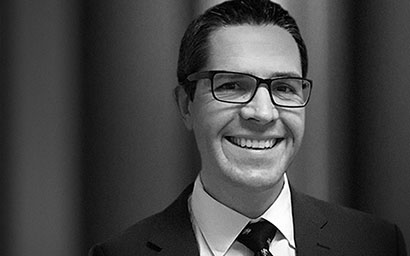A landmark legal ruling in the Hague has ordered Royal Dutch Shell to move faster to bring its emissions in line with the Paris Agreement on climate. Thomas Tayler, a trained lawyer and senior manager at Aviva Investors’ Sustainable Finance Centre for Excellence, assesses the fallout.
Major listed companies are finding themselves the target of legal action designed to make them move faster in lowering their carbon emissions. In the latest and what some are calling game-changing development, on May 26 Royal Dutch Shell was ordered to cut scope 1, 2 and 3 emissions by 45 per cent from 2019 levels by 2030.
The judge ruled action is necessary to avoid Shell breaching its duty of care to prevent harm and to respect human rights. While the company will appeal, environmental lawyers and campaigners believe the decision could open the floodgates for similar action against other major corporate emitters.
In this Q&A, Thomas Tayler looks at the judgement and the implications for oil majors and investors holding carbon-heavy assets.
What is the significance of the judgement against Royal Dutch Shell?
It’s the first time a private company has been ordered by a court to cut greenhouse gas emissions. Previously, climate litigation led to countries having emissions targets imposed by the courts, most notably in the Netherlands, but this is the first time a company has been ordered to act.
Litigation is contributing to the transition to a low-carbon economy, encouraging governments and companies to go further and respond to society’s need to tackle climate change. It is part of a wider pattern, where we have seen more climate cases being brought to the courts.
The judgement was based around the concept of civil wrongs, grounded in a particular part of the Dutch Civil Code which incorporates duty of care. It makes it unlawful for an entity to act in conflict with a generally accepted standard of care. That means Shell must act in a way consistent with what society would expect.
That is not the case in the UK. We have different classes of negligence, and they can evolve, but we do not have the same kind of catch-all. There are certain, specific things a court would need to be persuaded of by a litigant to allow it to find a new class of duty of care.
The judge combined some bold assumptions about what society believes about climate change, what society believes about human rights and what society expects of businesses; in doing so they have really moved the debate forward.
For example, the court said there was no dispute about the fact Shell’s actions were contributing to global warming. This was still something oil and gas majors were debating a few years ago. That acceptance of climate science and climate attribution is where the next wave of climate litigation will come from.
Our climate engagement escalation programme highlights there are about 30 companies responsible for around one third of global emissions. They will be looking at these issues extremely carefully.
It has taken a long time to reach the point where a court has ruled against a major oil and gas company. Were there any specific factors that made it possible?
The judge used principles from conventions on human rights and the global norms around them in an elegant way. Article Two of the European Convention of Human Rights (the right to life) and Article Eight (the right to private and family life) were the pertinent ones.
She did not consider the impact of Shell’s actions across the whole world, but solely in the Netherlands, considering how global warming is affecting citizens there. But it reads across to everyone, because of the global nature of the problem.
The fact the Dutch government had been ordered by the courts to cut emissions was cited as a precedent for the fact that Articles Two and Eight gave protection against the consequences of climate change. This judgement builds on the previous decision.
The judge also referred to the UN guiding principles on business and human rights and OECD guidelines for multinational enterprises as standards for what businesses should do. This is another area where the judge was bold, because although it is universally accepted businesses should respect human rights, this ruling sets out clearly that doing so should not be passive.
The responsibility covers the whole of Shell’s value chain, including Scope 3 emissions – the emissions generated from users of Shell’s products. Shell argued that it did not have a legal obligation to reduce these, but the court disagreed. That is a big step forward.
There is recognition of the climate science, and the first part of the judgement is a useful summary. The judge acknowledged Shell was only partly responsible for warming, but that did not absolve it of its responsibility to act. They rejected Shell’s argument that if it was made to reduce emissions, one of its competitors will simply fill up the space as an excuse not to make those reductions.
One of the most staggering things the judge said related to how much the emissions reductions might curb Shell’s growth. She accepted that making this 45 per cent reduction might be costly from a commercial perspective, but the need to reduce emissions trumped that. This is an incredibly important conclusion and one that others will be sure to want to use as a precedent in future actions.
The judge acknowledged Shell is not currently breaking any laws. But if the reductions in emissions are not made, that will breach this unwritten standard of care. Hence the need to change tack and rethink the strategy laid out to investors. She was quite scathing about those plans, which she said had too many caveats; she wants something concrete to reduce emissions.
Please read here the full article »
© 2021 funds europe





